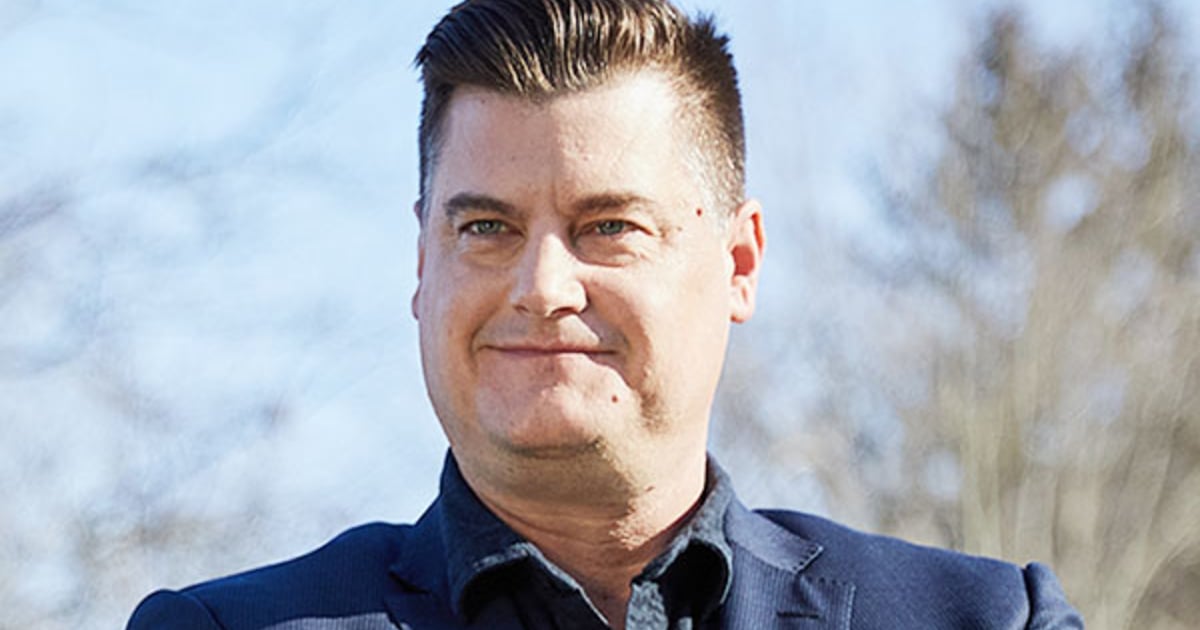
Volvo Cars is restructuring its U.S. and Canadian operations as part of an $88 million global effort to tighten spending, drive efficiencies and update its work force for an all-electric future.
Volvo Car USA and Canada President Michael Cottone said the initiative, code-named CORE+, is “all-encompassing.”
“There’s not any area of the business that is not impacted,” Cottone told Automotive News. “We have [many] different reports and jobs, and we’re looking at them to make sure these are the ones that give us the biggest impact and put our resources toward them.”
The Swedish automaker is cutting more than 10 percent of its nearly 1,000 white-collar work force in the U.S. and Canada, a source briefed on the plan told Automotive News. Volvo will also trim its regional ranks through early retirement offers. The head count reduction is expected to take effect by early October.
Adam Clarke, Volvo’s head retail network development and customer experience, was affected by the restructuring, said two sources familiar with the plans, who asked not to be identified. Clarke did not respond to a LinkedIn message sent Thursday.
Volvo is “turning over every rock they can to make themselves more efficient,” one of the sources said.
Volvo has downsized its Silicon Valley Tech Center and its Southern California design center as the automaker consolidates work elsewhere globally, another source said.
The company said Wednesday it will open a technology hub in Singapore to focus on data and analytics, software and advanced manufacturing development. Volvo also opened a tech center in Krakow, Poland, this year.
Volvo Car USA spokesperson Russell Datz declined to comment on the details of the restructuring, which will also affect contractors.
But Datz confirmed the scaling back of operations at the technical center, which has tripled in size since a 2018 expansion. The Sunnyvale hub, where Volvo does autonomous driving testing and verification, will maintain a “small presence,” he said.
In May, Volvo said it would cut about 1,300 jobs in Sweden — or 6 percent of its work force — as part of the restructuring. About 1,100 of those jobs will come from its main global operating unit, Volvo Personvagnar.
The initiative, instituted by Volvo Cars CEO Jim Rowan, comes as the automaker embarks on an ambitious and pricey pivot to battery power by 2030.
Volvo wants full-electric models to account for half of its expected 1.2 million sales by 2025. To get there, the automaker said it will launch a new full-electric car each year through mid-decade.
Other automakers are also tightening budgets and reshaping operations to accelerate the pricey development of electric vehicles and other new technologies.
Ford and General Motors have announced corporate restructurings that will shave billions of dollars in expenses and cut thousands of jobs.
Rowan said Volvo is “tightening up the [company’s] cost base and getting a little bit more cost discipline-focused.”
“It is not so much a cost-cutting program as more of a culture toward cost-consciousness … by doing things differently and more efficiently,” he said. “It behooves us as we grow to be able to put that in early.”
According to one of the sources, the reorganization is affecting morale inside Volvo’s North American operations, with employees concerned about a culture change and the loss of institutional knowledge.
Cottone said that Core+ will help create a “more focused Volvo Cars” and benefit the brand’s retailers.
“If Volvo Cars is not strong, that makes it tougher for the retailers,” he said. “It’s making sure everything is in focus and aligned to [ensure] that we launch our cars, grow their business and make the right investments for the both of us.”
Volvo is also reskilling its work force for a new age of electric products.
“We need to open some white space to bring in the skills that we need for that future,” Rowan said, referring to software development, analytics, machine learning and artificial intelligence.
As Volvo does more of its own EV powertrain development, the company wants to hire experts in battery chemistry, inverters and silicon carbide.
“There is a lot of new stuff that you need, and you need to develop those skills in-house,” Rowan said. “We’ll keep reshaping a skill base to be competitive in the future.”
The restructuring effort will not affect Volvo Cars’ global production network, including its Ridgeville, S.C., assembly plant, which employs 1,800.
“We need the output from the factories to keep up with demand, which was 50 percent higher than last year,” Rowan said in July.
Cottone said the near-term pain will ensure that the business’ growth engines get the financial and human fuel needed to shift into a higher gear.
“We’re not going to reduce investments that help our transformation,” he said. “We’re trying to [ensure] it’s optimized to continue our growth plans into the future, make sure Volvo is focusing the capital in the right areas.”
Douglas A. Bolduc contributed to this report.